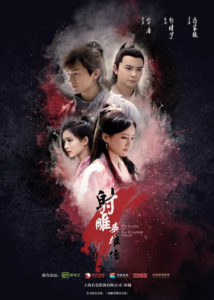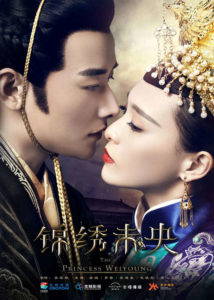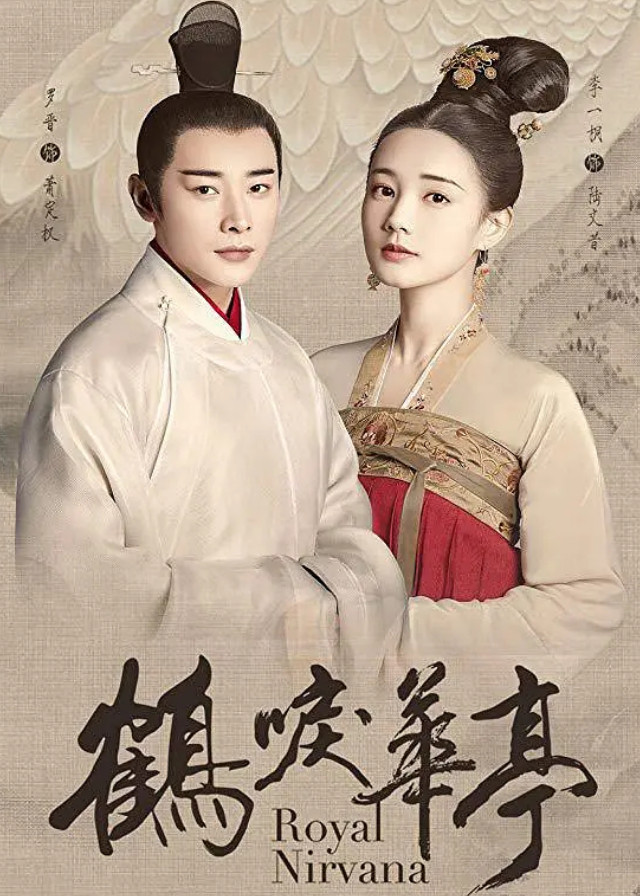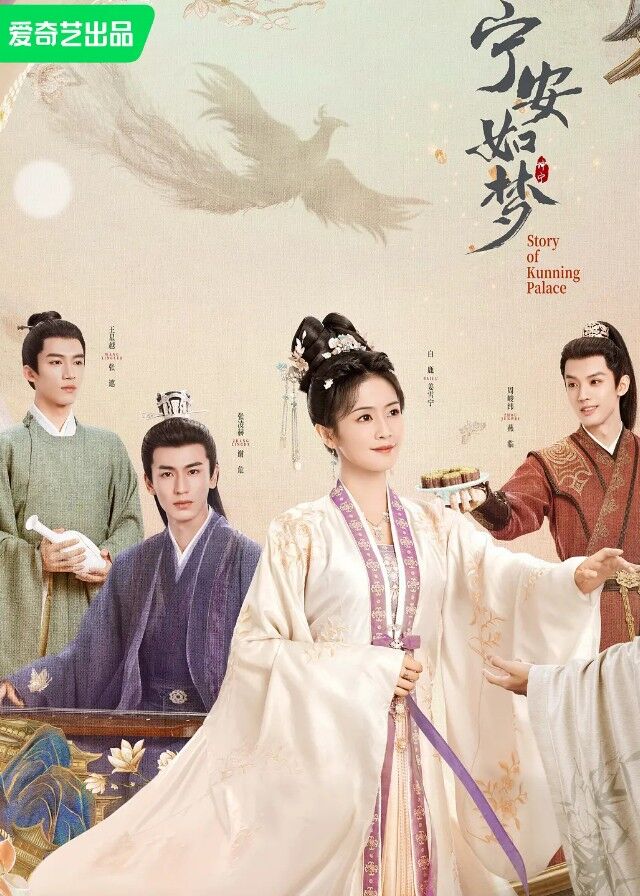Royal Nirvana Episode 54 Recap
> Royal Nirvana Recap
- 1
- 2
- 3
- 4
- 5
- 6
- 7
- 8
- 9
- 10
- 11
- 12
- 13
- 14
- 15
- 16
- 17
- 18
- 19
- 20
- 21
- 22
- 23
- 24
- 25
- 26
- 27
- 28
- 29
- 30
- 31
- 32
- 33
- 34
- 35
- 36
- 37
- 38
- 39
- 40
- 41
- 42
- 43
- 44
- 45
- 46
- 47
- 48
- 49
- 50
- 51
- 52
- 53
- 54
- 55
- 56
- 57
- 58
- 59
- 60
The Emperor summoned Gu Silin to the palace, and the two men reminisced about their experiences on the battlefield, expressing profound regret for the passing of time. The Emperor acknowledged that his achievements were built upon the Gu family's loyalty and sacrifice, recalling his solemn oath on Mountain Nan that he would never betray Gu Silin or the Gu family.
He confirmed his promise to make Gu Silin's sister, Gu Siqing, his Empress and her son the Crown Prince, assuring Gu Silin that he never forgot this pledge. The Emperor then addressed Xiao Dingquan's serious crime, stating that the Crown Prince had provided "ironclad evidence" himself, even daring to mention "discrown" in court. He explained that he had to give an account to the world and protect Xiao Dingquan from falling into the hands of others like He Shizhao.
Therefore, he decided to confine Xiao Dingquan for several days and tasked Li Chongkui with the investigation. Gu Silin expressed concern that entrusting Xiao Dingquan to the Konghe Yamen (yamen of imperial guards), where Crown Prince Min had been confined, might incite suspicion and "improper ideas" among officials. However, the Emperor maintained that with Li Chongkui overseeing the process, he could control the severity of the investigation, and suspicion was preferable to losing the ability to protect his son.
Changing the subject, the Emperor remarked that parents always worry endlessly for their children. He noted that Gu Fengen was 23 or 24 and still unmarried, and since Gu Silin's other son, Cheng'en, had no children, his lineage seemed desolate. Out of concern for the loyal Gu family, the Emperor suggested that Gu Fengen return from Changzhou to marry and live peacefully with his wife for a couple of years.
Gu Silin, understanding the underlying implications of the Emperor's suggestion, knelt and expressed gratitude for this "great kindness" on his son's behalf. Meanwhile, Li Chongkui arrived at Baoben Palace with his men to collect evidence, specifically Xiao Dingquan's handwriting. He also intended to arrest Wenxi, claiming she was an accomplice for leaving the palace on Xiao Dingquan's instructions.
Xiao Dingquan, imprisoned, defiantly told Li Chongkui that if the Emperor wanted him as a "living pawn," he would not allow Wenxi to be implicated, implying he would take his own life. He questioned if Li Chongkui understood the desire to protect someone "even if you don't have enough power." Li Chongkui seemed moved by Xiao Dingquan's words, reflecting on "skepticism, shame, and compassion," and deciding that "witnesses need to be people."
He ordered his men to withdraw without arresting Wenxi. However, a hidden handscroll was discovered in a secret compartment. Wenxi, observing this, remembered Xiao Dingquan asking her to paint "double cranes." She couldn't help but sob, tears streaming down her face, overwhelmed by the realization that Xiao Dingquan had always cherished this feeling.
Li Chongkui later reflected to himself that he, too, had promised to protect someone – the Censor-in-Chief – and that he understood wanting to protect someone despite lacking power. Wenxi, watching Li Chongkui and his men leave, internally resolved not to apologize, forgive, compensate, or regret, as too much had transpired for such sentiments. She recited a poignant poem about longing. A palace attendant then approached Wenxi, telling her that everyone had left and she should depart as well.
The attendant informed her that Xiao Dingquan had arranged for her to go anywhere she wished, including Changzhou. Wenxi left in a sedan chair. Xiao Dingquan watched her carriage disappear, acknowledging to himself that he would still think of her in the future, despite claiming otherwise, and felt a sense of relief that she would not become "another nightmare" for him. Separately, the Emperor summoned Zhang Luzheng.
Zhang Luzheng, prostrating himself, cried out that he had spoken the truth, but the Emperor remained unyielding. At Xiao Dingtang's residence, Xiao Dingkai inquired about Xiao Dingtang's involvement with Chancellor Zhang regarding Xiao Dingquan's situation. Xiao Dingtang, startled, dismissed his servants and pressed Xiao Dingkai about what he knew.
Xiao Dingkai feigned innocence, claiming that as Zhang Luzheng was being taken away by the Department of Justice, he asked Xiao Dingkai to relay a "horoscope" to Xiao Dingtang, saying he would understand. Xiao Dingtang recognized this as a coded message from an "old fox." Xiao Dingkai continued to tease his elder brother, feigning concern about his wife learning of the "horoscope," hinting it might belong to Zhang Luzheng's "second daughter."
An attendant then arrived to summon Xiao Dingtang to the palace. Before leaving, Xiao Dingtang warned Xiao Dingkai not to reveal their conversation, or Xiao Dingkai would also face serious consequences. In the palace, the Emperor angrily confronted Xiao Dingtang, asking if he had met with ministers in private after the Mid-Autumn Festival. Xiao Dingtang admitted he had met Zhang Luzheng.
The Emperor revealed that Zhang Luzheng, after being questioned, had implied that the framing of Xiao Dingquan was the Emperor's intention. Enraged that Xiao Dingtang's actions made him bear a "bad name," the Emperor slapped Xiao Dingtang, who then broke down, confessing that he had conspired with Zhang Luzheng because he resented Xiao Dingquan for disrespecting the Emperor during the Mid-Autumn Festival.
Later, Attendant Chen informed Xiao Dingkai that the Emperor had ordered him to take over as the chief interrogator for Xiao Dingquan, replacing Li Chongkui. Xiao Dingkai hesitated, citing Xiao Dingquan's status as his elder brother and the Crown Prince. Attendant Chen reassured him that his role was merely to "keep an eye on him" and prevent any incident. Xiao Dingkai respectfully waited outside Xiao Dingquan's cell, inquiring about his meals.
He noted that Xiao Dingquan had not eaten all day and offered to prepare something to his liking, especially sweets, which he knew Xiao Dingquan preferred. He then respectfully excused himself, promising to return the next day, and asked Attendant Chen about Li Chongkui's whereabouts. Meanwhile, Li Chongkui, having received an imperial decree, left the city to take charge of the Capital Garrison, ordering his men to deliver a message to Changzhou within three days.
A subordinate noted that the city gates were closed immediately after Li Chongkui's departure, speculating it was to prevent communication between Li Chongkui's retinue and the Capital Garrison. Gu Silin, in turn, understood that the Emperor's actions, including the closing of the city gates, were due to his wariness of Gu Silin himself. In the Changzhou army camp, Yang Duyun strictly enforced military discipline, executing several soldiers for gambling and drinking. He then discovered a lingering fragrance in the camp.
Upon investigation, the smell was traced to Gu Fengen's armor. Gu Fengen explained that the aroma was not incense he deliberately used but from fragrant materials sent by the Prefectural Governor of Changzhou, Li Mingan, which had permeated his armor after being placed in his uniform case upon his return from the city.
Yang Duyun, dismissing Gu Fengen's explanation and accusing him of insubordination and disrespect for military law, ordered him to be tied up, starved, and held until General Gu (Gu Silin) returned to decide his punishment.













